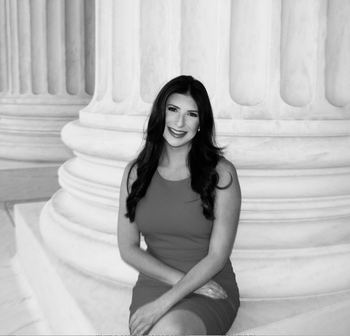Student govt apologizes for previous attendance at AIPAC conference
The University of Texas at Austin Senate of College Councils released 'Statement of Harm' on Sunday, apologizing for its acts committed against marginalized students.
The statement's apologies extended back to the 1970s, when the body helped deny funding to a pro-abortion program.
The University of Texas at Austin Senate of College Councils has released a “Statement of Harm” that acknowledges the “historically perpetuated harm against UT students of marginalized backgrounds.”
The senate’s Diversity, Equity, and Inclusion Team released the statement on August 29 and intends to update it accordingly as it sees fit.
The Senate of College Councils apologized in the document for several past presidents and vice presidents attending the American Israel Public Affairs Committee Policy Conference. According to the statement, AIPAC is “an organization that perpetuates Zionist beliefs (and subsequently promotes the unjust occupation of Palestine),” according to the document.
[RELATED: UIC places Native American land acknowledgements around campus]
Sterling Mosley, a member of the College of Councils and Campus Reform Correspondent, told Campus Reform that calling out council officials for attending AIPAC conferences is wrong.
“I think that calling out that attendance as ‘harm’ is wrong and that pressures others who may want to attend that conference to not do so in the future,” Mosley said.
Roz Rothstein, co-founder and CEO StandWithUs an international education organization that supports Israel and combats anti-Semitism, told Campus Reform that the “Statement of Harm” raises concerns for Jewish students on campus.
”StandWithUs is outraged that the UT Austin Senate College of Councils has apologized for attending an AIPAC policy conference which they maliciously claim causes harm because it promotes the belief that Jews have a right to self determination in their indigenous homeland, Israel,” Rothstein said. “In essence, by apologizing for awarding Jews the same rights and treatment as any other group of people, the Senate College of Councils is actually causing more harm, not undoing it.”
StandWithUs called on the university to “retract this damaging statement and to apologize for the harm it has caused to the Jewish and Zionist community on campus.”
Another “harm” perpetuated by the senate occurred during the 1970-1971 school year, when student government officials convinced the University of Texas Board of Regents to re-appropriate funding that was originally intended for a student-government senate approved abortion loan program.
Mosley told Campus Reform that the Senate of College Councils is “dominated by leftists” and he had to withhold some of his opinions simply to be part of it.
[RELATED: OU “mandatory diversity training” discourages saying “All Lives Matter”]
“It is initiatives like this Statement of Harm that dissuades conflicting opinions from speaking their mind during Senate assemblies and I think it ultimately is yet another example of how speech can be stifled,” Mosley said. “As far as I know, this Statement of Harm was not voted on by Senate and was made up by the Equity and Inclusion Committee, the Equity and Inclusion Director, and the Community Advocate Coordinator. I plan to speak out more against these type of things once our Senate assemblies begin again so that the Senate isn’t completely dominated by these indoctrinated leftist students.”
Additionally, the group apologized for the senate’s alleged “elitist structure and toxic environment.”
”In 2017, the Senate Fundraising Committee Co-chair resigned from their position over personal frustrations with the organization’s elitist structure and toxic environment. In the letter dealing the reasons for their resignation, they stated that one member was ‘unknowingly racist,’ and expressed other internal culture concerns,” the statement says.
The document further states that the senate takes “full responsibility” for the “harms” committed in the past. As a result, Senate members will attend diversity, equity, and inclusion trainings.
A spokesperson for the University of Texas at Austin referred Campus Reform to the Senate of College Councils when asked for comment; the latter did not respond to a request for comment.

